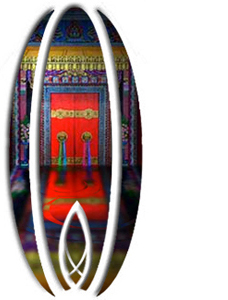Hinduism
- At June 10, 2009
- By Betty
- In Mysticism, Religion
 2
2

Hinduism is a religion that originated on the Indian subcontinent. With its foundations in the Vedic civilization, it has no known founder, being itself a conglomerate of diverse beliefs and traditions. It is considered the world’s “oldest extant religion,” and has approximately a billion adherents, of whom about 890 million live in India, placing it as the world’s third largest religion after Christianity and Islam. Other countries with large Hindu populations include Nepal, Sri Lanka, Bangladesh, Indonesia, Malaysia, Thailand and Pakistan.
Hinduism provides a vast body of scriptures. Divided as revealed and remembered, and developed over millennia, these scriptures expound an equally vast range of theology, philosophy, and myth, providing spiritual insights along with guidance on the practice of dharma (religious living). Among such texts, Hindus revere the Vedas along with the Upanishads as being among the foremost in authority, importance, and antiquity.
Hinduism is sometimes considered to be a polytheistic religion, but such a view tends to oversimplify a diverse system of thought with beliefs spanning monotheism, polytheism, panentheism, monism and even atheism. For instance, the Advaita Vedanta school holds that there is only one causal entity (Brahman), which manifests itself to humans in multiple forms while many scholars consider Samkhya to have atheistic leanings.
According to the monistic/panentheistic theologies of Hinduism, Brahman (the greater Self or God) is in the highest sense One and nondifferentiated from the world and its beings (hence ‘nondualist’). In connoting Brahman’s absolutely unparalleled nature, it is also called Parambrahman, where the Sanskrit prefix param- denotes “ultimate”. Brahman is also sometimes seen as synonymous with the concept of Paramatma (Supreme Spirit). Beyond time and space, both immanent and transcendant, Brahman is often described succinctly as sacchidananda, meaning ‘Truth-Consciousness-Bliss’, not only possessing the qualities but also being their very essence. Advaita philosophy declares that ultimately Brahman (the impersonal God) is beyond mere intellectual description and can be understood only through direct spiritual experience, where the ‘knower’ and the ‘known’ are subsumed into the act of ‘knowing’. The goal is to “wake up” and realize that one’s atman, or soul, is really identical to Brahman, the uber-soul.
On the other hand, monotheistic (typically Dvaita Vedanta) and related devotional (bhakti) schools, understand Brahman as a Supreme Being who possesses personality. In these conceptions, Brahman is associated with Vishnu, Shiva or Shakti depending on the sect. Brahman is seen as fundamentally separate from its reliant souls (humanity) so, in achieving liberation, individual beings experience God as an independent being, a living personality, and retain their individual identities.
Many Hindus do not claim to belong to any particular denomination at all. However, academics categorize contemporary Hinduism into four major denominations: Vaishnavism, Shaivism, Shaktism and Smartism. The denominations differ primarily in the God worshipped as the Supreme One and in the traditions that accompany worship of that God.
Vaishnavas worship Vi?h?u; Shaivites worship Shiva; Shaktas worship Shakti (power) personified through a female divinity or Mother Goddess, Devi; while Smartists believe in the essential sameness of all deities and that they are all Brahman.
There are also many movements that are not easily placed in any of the above categories, such as Swami Dayananda Saraswati’s ?rya Sam?j, which condemns image worship and veneration of multiple deities. It focuses on the Vedas and the Vedic fire sacrifices. In Tantra, the Goddess is considered the power of Shiva, and thus represents a combination of the Shaiva and shakta denominations.
As in every religion, some view their own denomination as superior to others. However, many Hindus consider other denominations to be legitimate alternatives to their own. Heresy is therefore generally not an issue for Hindus.

